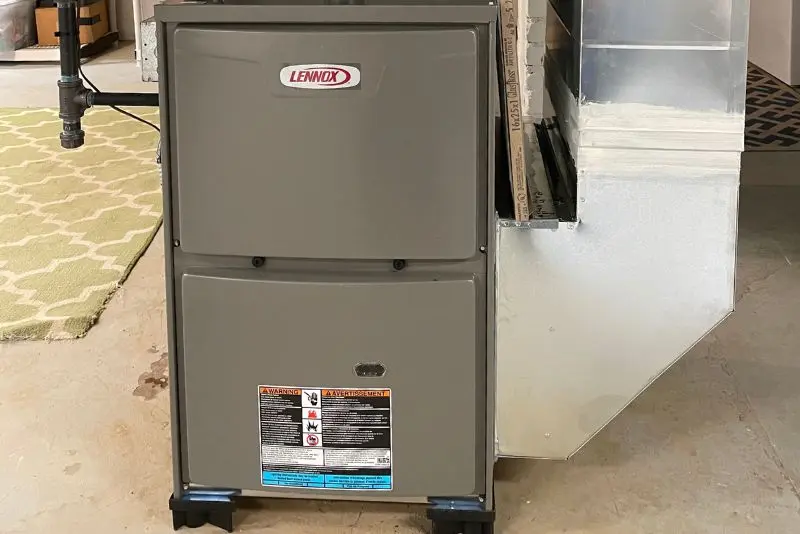Choosing between a boiler or a furnace for home heating involves considering various factors that affect not just the comfort of your home, but also your budget, and maintenance preferences. Here are the pros and cons of each:

Furnaces (Forced Air System)
Let’s kick things off with furnaces – the tried and true heating system found in many homes across the country. Furnaces work by blowing heated air through ducts to warm your living space. One of the key advantages of furnaces is their cost-effectiveness. They are generally more affordable to install compared to boilers and provide instant heat at the touch of a button. Perfect for those chilly winter mornings when you need a quick blast of warmth!
Pros:
Lower Initial Cost: Furnaces generally cost less to install than boilers, partly due to simpler technology and widespread installation expertise.
Quick Heating: Furnaces heat and distribute air quickly throughout the house.
Air Conditioning Integration: Furnaces can share ductwork and vents with central air conditioning systems, making it easier and cheaper to have a single system for both heating and cooling.
Ease of Maintenance: Regular maintenance tasks, such as changing filters and basic repairs, are often simpler and cheaper in furnace systems.
Cons:
Noise: Furnaces can be noisier than boilers due to the blowers used to circulate hot air.
Air Quality: By circulating air, furnaces can stir up dust and allergens within the home, potentially worsening air quality.
Heat Distribution: The heat from furnaces can be uneven, with rooms closer to the furnace often warmer than those further away.
Energy Efficiency: Although modern furnaces can be highly efficient, air-based systems generally lose more heat than water-based systems like boilers.
Boiler (Hydronic System)
Now, let’s shift our focus to boilers. Boilers work by heating water and distributing it through radiators or radiant floor systems to warm up your home. One of the standout features of boilers is their energy efficiency. They are known for their ability to provide consistent and even heat, making them a popular choice for many homeowners.
Pros:
Efficiency: Boilers generally use water to transport heat, which retains heat better than air, making the system more energy-efficient.
Comfort: Heat from a boiler is distributed more evenly and gradually around the home, which can feel more comfortable than the sometimes abrupt airflow from furnaces.
Silence: Boilers operate very quietly, as they don’t use blowers or fans.
Air Quality: Because boilers do not blow air, they don’t spread dust, allergens, or other particulates throughout the home.
Cons:
Installation Cost: Installing a boiler system can be more expensive than installing a furnace due to the complexity of the system and the need for pipework and radiators or underfloor heating systems.
Maintenance: While maintenance might not be frequent, it can be more expensive when issues occur, particularly with pipework leaks or radiator problems.
Slow Response: Boilers take longer to heat up and adjust the temperature in your home compared to furnaces.
No Cooling: Boilers only provide heating; a separate system is required for air conditioning.
Comparison
Furnaces are generally more budget-friendly in terms of installation costs, making them an attractive option for those looking to save some money upfront. However, boilers offer better energy efficiency, which can lead to long-term savings on your heating bills.
When it comes to maintenance and longevity, boilers tend to have a longer lifespan compared to furnaces. They are also less prone to breakdowns and require less frequent maintenance. On the other hand, furnaces are known for their ease of installation and repair, making them a convenient choice for homeowners.
